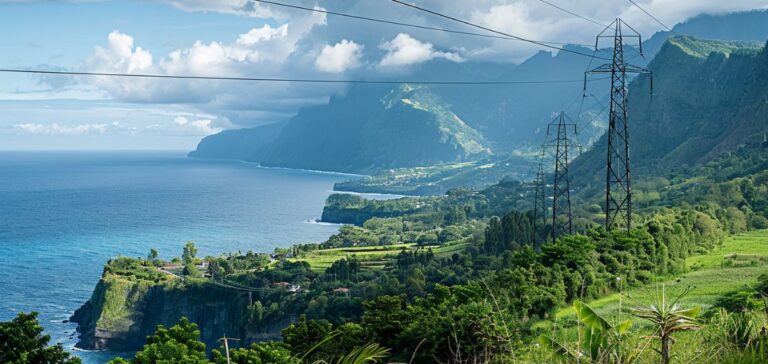The awarding of electrification contracts in Réunion is at the center of a judicial case set to be heard in Paris in May. Eight individuals, including officials from the Syndicat Intercommunal d’Électricité de La Réunion (Sidélec) and several business leaders, along with two legal entities, will face charges of favoritism, illegal agreements, and corruption.
A Distorted Contract Awarding System
Investigations conducted by the National Financial Prosecutor’s Office (PNF) have revealed a series of illegal agreements among several local companies aimed at manipulating public tenders for rural electrification projects on the island. According to case documents, the involved companies allegedly coordinated their bids to set prices significantly above official estimates.
Some business executives have admitted to the existence of a structured system that benefited certain economic players in exchange for compensation. These practices, beyond artificially inflating costs for local authorities, also distorted competition and undermined the transparency of the contract awarding process.
Financial Penalties and Market Exclusions
Even before the main trial begins, several business leaders and companies have already been sanctioned through plea agreements (CRPC). Five companies have received fines ranging from €30,000 to €1 million, with some also facing temporary bans from public contracts.
The company Bourbon Lumière, identified as a central player in the corruption network, was convicted of favoritism and anti-competitive practices. Its fine, the highest in the case, is accompanied by additional sanctions for several of its executives. Among them, Jean-Marc Testoni was sentenced to 30 months of suspended imprisonment, a three-year ban from public contracts, and the confiscation of his seized bank assets.
Political and Judicial Implications
Among the accused, Maurice Gironcel, president of Sidélec and mayor of Sainte-Suzanne, faces charges of favoritism and passive public corruption. He will have to explain his role in contract awards and any undue advantages granted to certain companies.
In response to these revelations, the main defendants have declined to comment. Meanwhile, several convicted companies have begun internal reforms to revise their compliance processes and ensure adherence to legal standards.
A Trial with Economic and Regulatory Stakes
The trial, scheduled from May 21 to 27 before the Paris Correctional Court, highlights the risks of corruption in the management of public infrastructure. It also raises concerns about oversight and regulatory mechanisms needed to prevent similar misconduct in public contract processes.
The outcome of this case could have repercussions on the entire electrification sector in Réunion and, more broadly, on public procurement procedures in France’s overseas territories.






















